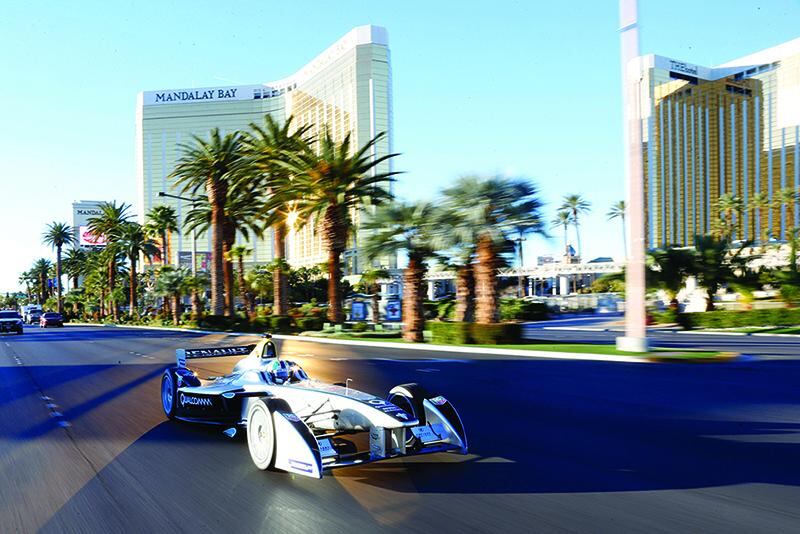Electric cars are the future – or so we're told by the futurologists predicting how our planet will evolve and change in the next 30 years or so.
Admittedly, there's a lot of logic in owning a sustainable, non-polluting and relatively cheap-to-run electric vehicle (EV), but consumers are so far unconvinced, with range anxiety fears and purchase prices the biggest barriers to take-up.
More desirable models – such as the BMWs i3 and i8, and the Tesla S – will help create a bigger buzz around electric cars, but now there's another propaganda tool to help persuade car buyers that EVs are indeed the future.
Formula E is a new motorsport championship that will see 10 two-car teams racing all-electric single-seaters around 10 city-centre circuits across the world, starting in Beijing on September 13 and ending in London on June 27 next year.
For the first season, all teams will run the same car, the Spark-Renault SRT_01E, which features the latest technology developed by a host of major names from Formula 1. McLaren is responsible for the electric power train, Williams has designed the batteries and Renault is integrating all the car's elements – including a carbon fibre and aluminium monocoque chassis, and carbon and Kevlar bodywork. The car is capable of 0-100kph in less than three seconds and has a (limited) top speed of 225kph.
Obviously, an electric power plant means that the Formula E car won't make the kind of noise we normally associate with racing cars. But the high-pitched, jet-engine-like sound emanating from the Formula E car is intriguing, in a futuristic kind of way, and the 80dB it generates is still more than most road cars. When the 20 single-seaters are racing around a circuit in anger, it should make for quite a sonic experience.
The car itself might not be an F1 machine, but it is clearly piquing the interest of a host of ex-F1 drivers, who have signed up to drive in the championship. These include Sebastian Buemi, Bruno Senna, Jarno Trulli and Nick Heidfeld, whom The National spoke to at the recent launch of the championship.
When asked how it compared to an F1 car, Heidfeld said: "The new thing is that you get in the car, you don't hear the engine running, but you just drive away. At first it feels strange, but you get used to it very quickly.
"You hear the wind noise and the tyres, but you have to change some of the senses you've developed as a driver. You take the sound of the engine into consideration when you're controlling the car, but with an electric car it's very different: you have to try and feel it more through your body."
The organisers say that the main objectives of the series are to change the perception of electric cars, act as a framework for EV research and development, promote sustainability, play a role in fighting pollution in cities and help combat climate change.
But can a glamorous race series really overcome real-world consumer concerns about EVs?
The answer has to be no, but Formula E seems to recognise this and is playing a long game, seeking to influence younger "millennials", especially metropolitan-based ones, who are turning away from learning to drive and car ownership.
Hosting a race series in cities such as Berlin, Miami and Buenos Aires should certainly help advance the cause of electric cars: a series of measures, including fans voting for drivers to give them an extra overtaking boost, is intended to chime with young people.
The presence of the BMW i3 and i8 on race days as medical and pace vehicles will also help join the dots between the racers and electric road cars.
So can Formula E survive, thrive and meet its objectives? With the backing of the Fédération Internationale de l'Automobile (FIA), global motorsport's governing body, some big names from the car industry (Audi is running a team) and a large dose of big-city glamour, we wouldn't bet against it.
Formula E – a new racing championship for electric cars makes its debut in September
Formula E is a motorsport championship that will see 10 two-car teams racing all-electric single-seaters around 10 city-centre circuits across the world, starting in Beijing on September 13 and ending in London on June 27 next year.

Editor's picks
More from The National





